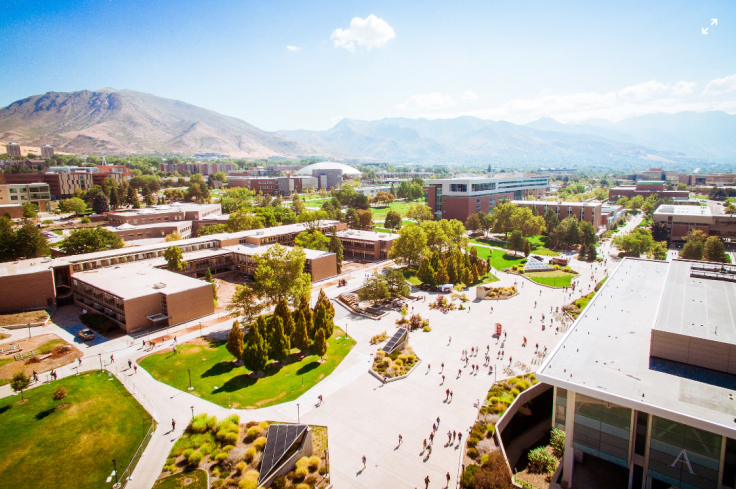American college campuses are grappling with a concerning surge in anti-Zionism and antisemitism. A Jewish professor from a small liberal arts college in the Pacific Northwest recently shared harrowing accounts of the escalating situation, shedding light on an issue that demands urgent attention. This article aims to delve into the roots of the problem, as articulated by David Bernstein, and propose comprehensive, long-term interventions to address the core issues.

Antisemitism Unveiled on Campus
On the quiet campuses of the Pacific Northwest, a Jewish professor has become a witness to the rising tide of antisemitism. Daily protests beneath his office window feature chants like "From the River to the Sea," with the professor subjected to fierce harassment for expressing moderate pro-Israel views on social media. Shockingly, Jewish students on the same campus have faced death threats and intimidation, prompting some to be escorted by campus security to avoid hostile encounters. This underreported reality points to a deep-seated issue that extends beyond the Pacific Northwest and warrants a closer examination of its roots.
Identifying Three Key Factors
In understanding the roots of this campus hate, David Bernstein identifies three key factors that converge to create an environment fostering anti-Zionism and antisemitism.
1. Soviet Anti-Zionist Campaign of the Late 1960s
The late 1960s saw the Soviet Union actively discrediting Zionism through a campaign known as "Zionology." Distressed by Israel's victory in the 1967 Six-Day War, the Soviets sought to make antisemitic conspiracy theories politically useful to the Western hard left. This historical campaign, as explained by Wilson Center scholar Izabella Tabarovsky, has provided the template for the contemporary anti-Zionist sentiment on American campuses.
2. Emergence of Postmodern and Postcolonial Studies
Simultaneously, the emergence of postmodern and postcolonial studies in American universities played a pivotal role in shaping the discourse. Scholars with an activist agenda infiltrated higher education in the late 1960s, establishing departments that deviated from conventional scholarly inquiry. Influenced by figures like Edward Said, this movement shaped a radical leftist discourse, framing Zionism as a colonialist project and perpetuating an oppressor/oppressed binary.
3. Role of Middle Eastern Money
The infusion of Middle Eastern money, primarily from Qatar, into U.S. universities is the third factor identified by Bernstein. Research by the Institute for the Study of Global Antisemitism and Policy uncovered undisclosed billions in funding, significantly impacting the promotion of antisemitic discourse, identity politics, and anti-democratic sentiments within these institutions.
Long-Term Solutions
To address the roots of campus hate, short-term actions are insufficient. A strategic, long-term approach is needed, as proposed by David Bernstein.
1. End or Transform Diversity, Equity, and Inclusion (DEI) Programs
Bernstein suggests that DEI bureaucracies function as ideological authorities, reinforcing political orthodoxies on campuses. He proposes ending or transforming these programs to eliminate biases and create a more inclusive environment for all students.
2. Recommit to the Liberal University Model
To counteract ideological influences in humanities departments, Bernstein advocates for a recommitment to the liberal university model. Major donors are encouraged to redirect philanthropy towards new academic programs explicitly promoting free inquiry and freedom of expression.
3. Cut Middle Eastern Sources of Funding
Addressing the role of Middle Eastern funding, Bernstein urges efforts to expose and cut financial support from foreign governments, foundations, and corporations. Increased scrutiny and accountability are essential to prevent further ideological influence on American campuses.
Challenges and Stakes: The Need for Strategic Shifts
Implementing these long-term interventions poses significant challenges, but the stakes couldn't be higher. If the current trend persists, future generations may be educated with hostility towards Israel, leading to a decline in U.S.-Israel ties. Moreover, fostering antipathy towards American values and its global role could result in an America that withdraws from the international stage, leaving room for hostile powers like Iran, Russia, and China.
The seemingly absurd ideological trends in humanities departments, if left unchecked, pose a long-term threat to global stability. Thus, a sustained effort to reshape campus culture becomes imperative.
Bernstein underscores the urgency of a strategic, long-term approach to changing university cultures. While short-term measures may alleviate immediate concerns, they fail to address the deep-seated issues contributing to the rise in antisemitism. By understanding the historical roots and implementing comprehensive interventions, there is hope for creating a more inclusive, tolerant, and intellectually diverse environment on American college campuses. The responsibility lies not just with the educational institutions but with society at large to ensure that the values of pluralism, free inquiry, and freedom of expression prevail.
RELATED ARTICLE: Jewish Students Need Empathy And Care As They Face Hardships On US Campuses
© 2026 University Herald, All rights reserved. Do not reproduce without permission.








